
In this article UKC Chief Editor Jack Geldard looks at simple ways you can prepare for the coming summer season by sorting your gear, watching movies, chatting with friends and all the while improving your climbing.
Is it really possible? It's certainly worth a try!
Spring and summer are on their way, the clocks have turned and now is a great time to revamp your climbing habits ready for a new season.
There are loads of articles on UKC about how to train, how to improve, how to use indoor walls, how many pull ups to do and how to get strong, but in this piece I'm going to give you some tricks to improve your climbing without touching a campus board.
These tips will work in a number of ways from the obvious (having a carabiner that doesn't stick open will clearly help your climbing) to the not so obvious (having spent some time cleaning your carabiners your brain is now primed for climbing by knowing that you are prepared, safe and ready). And after reading this article you'll be primed and ready for a summer of UK trad and perhaps some trips to adventurous destinations like the Dolomites (pictured below).
Sort Your Gear
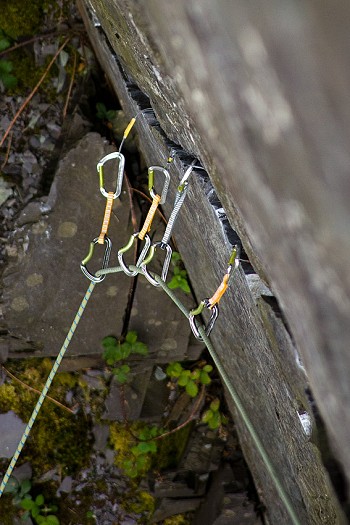
Here's a couple of examples:
Carabiners: Check every carabiner for signs of wear, that means grooves where the rope runs through, any serious nicks from clipping bolts, gate action - is it smooth? A good thing to do is to wash carabiners in warm water (a bit of washing up liquid works for me) and dry them off. A tiny squirt of WD40 on the gate, and a quick wipe with a cloth, and they are ready for action. Any dodgy ones, chuck 'em away, don't keep them as racking 'biners or similar, otherwise you can bet your bottom dollar that they will end up being the carabiner that is the only thing between you and a groundfall next time you're strung out 40m up that Pembroke test-piece.
Wires: Essential to check. Have a good look at the wire on the end of the nut, this is a usual wear point. Look for bent or broken strands, and check the swage, does it all seem good? Don't worry about surface scratches on the actual nut itself, but any damage to the wires will weaken the piece - if in doubt chuck it out. Have you got your full set? Need a number 5? Ended up with two number 7s? Maybe it's time for some swapping on the UKC For Sale Forum.
The same sort of thing goes for all your other gear too, from rock shoes and ropes through to helmets and harnesses. Check them, clean them, look after them and if in doubt, replace them.
And here's a less expensive bit of kit:
Slings / Quickdraw tapes: Check them for wear, sun bleaching, nicks, fluffy bits. These are cheap to replace and quick to wear out. In fact, unless your tapes and slings are really new, I'm going to be bold and suggest you invest in some new ones: Why?
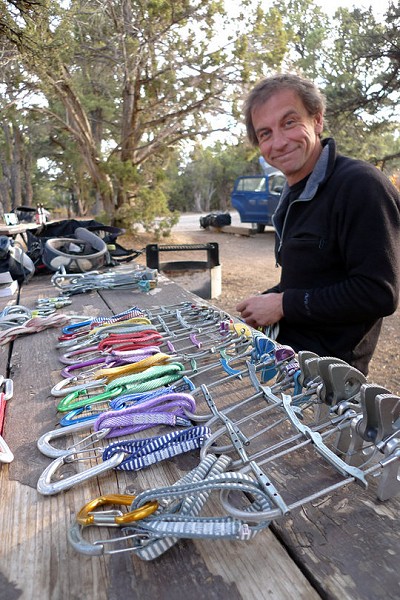
What is psychological priming?
I'm no psychologist, but I do know that a lot of world class athletes and successful business people use a variety of methods of psychological priming to increase their performance.
You are constantly picking up subconscious perceptions/information prior to an activity. This can be words you hear, things you see, experiences you have had etc. Priming is the act of choosing to pick up certain perceptions/information to help your task - ie. climbing.
Your brain can be primed in a number of ways, from reading a word list and then filling in the blank spaces such as:
- S a n d s t o n e
- L i m e s t o n e
- G_ _ _ _ _ _ _e
Did you guess Gritstone...?
Through to saying out loud several times per day that you are going to climb your hardest or watching videos of climbers succeeding on hard routes.
It's documented in his book (pictured) that Jerry wrote down in his diary every day that he was the best climber in the world, that he was training the hardest, that he was going to succeed. These are positive affirmations and work well for some people, however saying out loud over and over that you are a good climber isn't for everyone!
One of the most effective methods of psychological priming is to successfully complete loads of routes at a given grade. If you've just onsighted your last 100 E1 climbs, then you are going to be pretty confident approaching number 101... but this article is about getting better without climbing, so...
Where do the new quickdraw tapes come in?
You look down beneath your feet and see your gear well below you on the route. And you see those brand new, safe, strong tapes. You know you spent that bit of extra time to replace your tapes, and make sure your rack is working perfectly. You know you've checked that wire that is in the crack, and all these tiny things are going to add up in your mental state. You might not know it, but you may have just got yourself up a route that otherwise would have seen you hanging on a cam, or backing off.
Possible Priming Perceptions from that well-looked-after rack:
- Prepared
- New
- Safe
- Ready
- Strong
- Shiny
Possible Priming Perceptions from an old rack that you borrowed from your uncle Nigel:
- Old
- Rusty
- Wobbly
- Weak
- Dodgy
- Unknown
Sort Your Partners
The people you climb with can be the biggest factor in how well you climb. Unfortunately you can't just squirt them with WD40 and buy some new bits of nylon to smarten them up a bit.
Some folks just seem to have climbing partners coming out of their ears, while for some of us finding that perfect climbing partner can be tricky. Maybe you work shifts? Have odd days off? Climb in a bit of a backwater? All these things can be overcome, and being picky with your partners can actually pay dividends to your climbing ability.
Firstly don't think about partners, think about yourself. Why would anyone want to climb with you? Are you safe? Supportive? Easy going? Self sufficient in terms of gear/ropes etc? Reliable? Positive?
Turning yourself in to your ideal climbing partner will help you when finding partners of your own. You're much more likely to end up in a great scene if you have something to offer that scene, whether that's as shallow as having a car in which you can all get to the crag, or having great knowledge of local climbing, or being well known as a safe, positive and reliable partner.
Once you have a good partnership formed, then this can do wonders for your climbing.
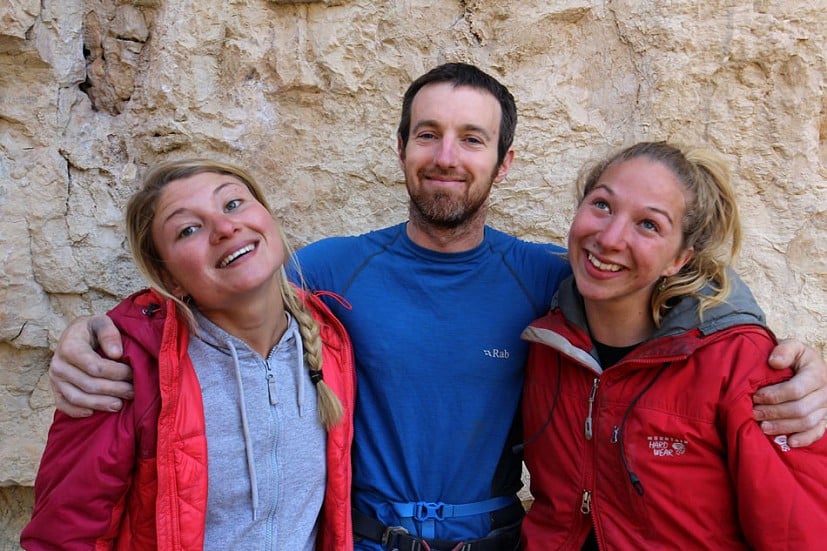
Good partners are positive, encouraging and safe. All these things can help prime your brain and improve your grade. And if you manage to hook up with more experienced climbers than yourself, then not only can you actually learn from their experience, developing techniques that they show you, but your expectations of what is possible, what is hard, what is within your reach will naturally adapt to match theirs.
If your group of climbing mates all climb E5, then after a while E5 will seem like a normal grade to achieve. You'll naturally adapt to that scenario as being normal, you'll most likely begin to adopt their training / climbing habits, and you'll see your climbing change accordingly.
Being around committed, active and talented climbers will act as a visual primer for your brain, as well as actually teaching you real skills.
Possible Priming Perceptions from that group of excellent climbing partners:
- Safe
- Solid
- Looking out for me
- Attentive
- Encouraging
- Fun to be with
- Willing me on
Possible Priming Perceptions from unhelpful or bad partners:
- Scary
- Disorganised
- Dangerous
- Unreliable
- Haphazard
- Negative
- Impatient
Sort Your Lunch!
I throw 'dieting' in with training myself: Hard work. This article is about improving your climbing without that hard work (although of course hours of training are great for climbing, not only physically, but also as positive priming...!). So what is this section all about? Lunch?
You need to fuel your body well to operate at a high level at any sport. So getting orgainsed with your crag meals is a great idea to not only save yourself some time on the mornings of climbing days, but also to help physical performance, as well as psychological.
Eating healthy, well thought out food during a climbing day (as well as hydrating) will help your performance. Factor this into your shopping. Design yourself some healthy, energy giving meals that are simple to take climbing. Plan when you are going to eat them (not all at once in the middle of the day, but spread out, giving you energy and not pulling all the blood to your stomach at lunch time), and also factor in a mini-meal for the end of the climbing session to aid recovery.
And, with your newly organised and well thought out food plan, guess what?
Possible Priming Perceptions from your new healthy crag food:
- Organised
- Healthy
- Athlete
- Recovering
- Fit
Possible Priming Perceptions from haphazard and unhealthy eating:
- Unhealthy
- Cheap
- Over weight
- Weak
So there you have it. Several ways you can improve your approach to climbing that will have a tangible physical effect on your performance, without the need for training.
And thrown in for no extra effort is the possibility of seriously improving the mental aspect of your climbing, which is at least as important as fitness. What's not to like?
Okay, I'm off to the pub to chat with my mates, eat some healthy food and see if I can get them to put Wideboyz on the big screen..! I'll be climbing 9a in no time...
- SKILLS: Building Fast Belays When Multipitch Sport Climbing 9 Nov, 2016
- SKILLS: Abseil Knots Explained 2 Oct, 2016
- FEATURE: Colm Shannon's Deserted DWS Heaven - Irish West Coast 7 Aug, 2016
- SKILLS: Acclimatising for the European Alps 5 Jun, 2016
- Terra Unfirma! Adventures on the Lleyn Peninsula 1 Jun, 2016
- VIDEO: Fiesta De Los Biceps 8 May, 2016
- REVIEW: Evolv Shaman 2016 18 Mar, 2016
- REVIEW: Doug Scott - Up and About 2 Feb, 2016
- ARTICLE: 12 Climbing Adventures That Won't Break The Bank 26 Jan, 2016
- DESTINATION GUIDE: 10 Routes to Climb in Chamonix in Winter 20 Jan, 2016



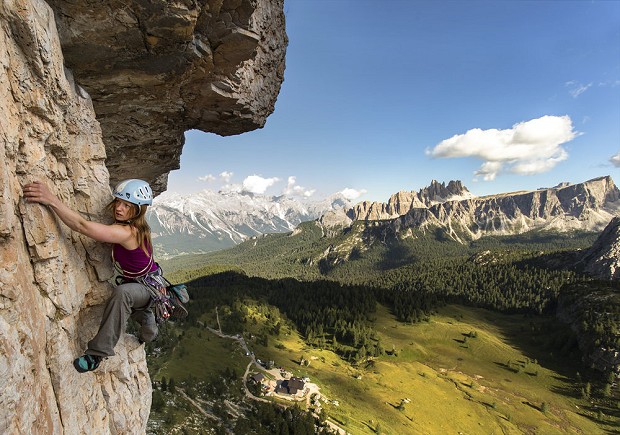
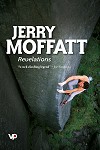
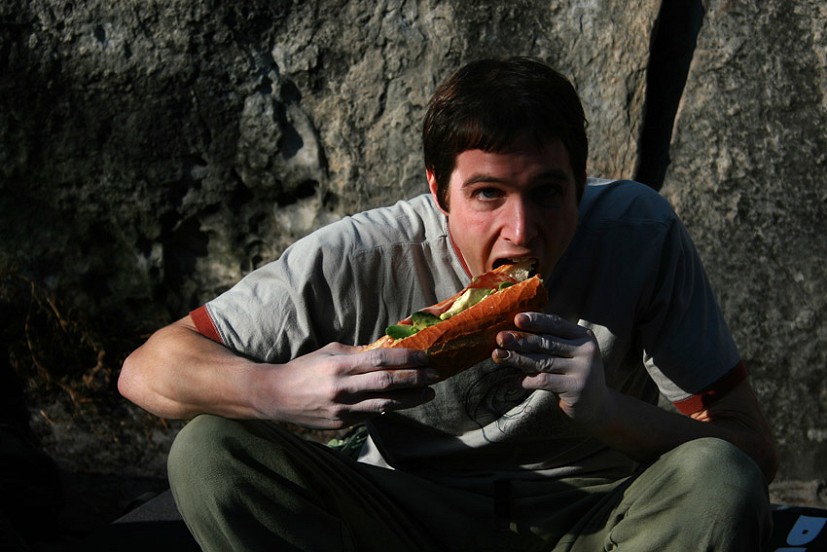

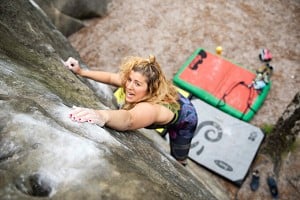
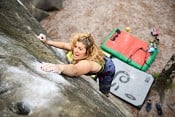

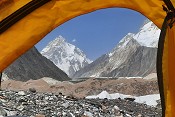








Comments